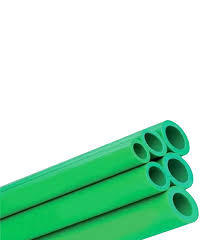Oct . 11, 2024 11:33 Back to list
Bulk HDPE Sprinkler Pipe for Efficient Irrigation Solutions and Water Management
The Growing Importance of Wholesale HDPE Sprinkler Pipes in Agriculture
In today's agricultural landscape, efficient water management is crucial for maximizing crop yield and ensuring sustainable farming practices. With increasing concerns about water scarcity and the environmental impact of traditional irrigation methods, the demand for innovative irrigation solutions has never been greater. One such solution that has gained significant traction in recent years is the wholesale procurement of High-Density Polyethylene (HDPE) sprinkler pipes. This article explores the benefits, applications, and future trends associated with HDPE sprinkler pipes in agriculture.
What is HDPE?
High-Density Polyethylene (HDPE) is a thermoplastic polymer made from petroleum. Known for its high strength-to-density ratio, HDPE is resistant to impact, moisture, and a wide range of chemicals. These properties make it an ideal material for various applications, including irrigation systems. The growing popularity of HDPE in agricultural applications can be attributed to its durability, flexibility, and cost-effectiveness.
Advantages of HDPE Sprinkler Pipes
1. Durability HDPE pipes are incredibly robust and can withstand harsh environmental conditions. Unlike traditional metal or PVC pipes, they are less prone to corrosion, making them a long-lasting investment for farmers.
2. Flexibility One of the standout features of HDPE pipes is their flexibility. This characteristic allows for easy installation and adjustment, accommodating changes in terrain and providing a versatile solution for various field sizes and shapes.
3. Cost-Effectiveness In the long run, HDPE pipes can be more economical than traditional alternatives. Their durability reduces the need for frequent replacements, and the lightweight nature of HDPE makes transportation and installation easier and cheaper.
4. Reduced Water Loss Efficient irrigation is crucial for conserving water. HDPE sprinkler systems minimize water loss due to evaporation and runoff, ensuring that more water reaches the plants. This is especially important in regions where water is scarce or expensive.
5. Environmental Impact As sustainability becomes increasingly important, the eco-friendliness of HDPE pipes cannot be overlooked. They are recyclable, and their long lifespan contributes to less waste in landfills compared to traditional pipes.
Applications in Agriculture
wholesale sprinkler hdpe pipe

HDPE sprinkler pipes are used extensively across various agricultural practices. They are ideal for delivering water in both large-scale farming operations and smaller gardens. Here are some key applications
- Crop Irrigation Farmers use HDPE sprinkler pipes to irrigate fields efficiently. The pipes can be configured in various designs, ensuring that water reaches every part of the field uniformly.
- Greenhouses In controlled environments like greenhouses, HDPE systems provide precise water distribution, essential for maintaining the health of plants.
- Landscape Irrigation Beyond crop production, HDPE pipes are also used in residential and commercial landscape irrigation, ensuring well-maintained gardens and lawns.
Trends and Future Outlook
As the agricultural industry continues to evolve, several trends are influencing the use of HDPE sprinkler pipes
- Smart Irrigation Systems The integration of technology in agriculture is on the rise. Smart irrigation systems that use sensors and data analytics are becoming more popular. These systems can optimize water usage, and HDPE pipes are often utilized in their implementation.
- Sustainable Farming Practices With a growing emphasis on sustainability, more farmers are seeking reliable and environmentally friendly irrigation solutions. The demand for HDPE pipes in sustainable agriculture is expected to increase significantly in the coming years.
- Global Market Growth The global HDPE pipe market is anticipated to grow as more countries recognize the benefits of effective irrigation systems. This growth presents opportunities for wholesale suppliers to expand their reach and offer competitive pricing.
Conclusion
The wholesale market for HDPE sprinkler pipes is poised for significant growth, driven by advancements in technology, sustainability initiatives, and an increased focus on efficient water management. As farmers and agricultural businesses continue to seek reliable, cost-effective, and eco-friendly irrigation solutions, HDPE pipes stand out as a superior choice. By investing in these innovative piping systems, the agricultural sector can enhance productivity while addressing the critical issue of water conservation. As we move forward, the role of HDPE in agriculture is likely to become increasingly vital, paving the way for a more efficient and sustainable future.
-
HDPE & PPR Pipe Elbows Durable, Corrosion-Resistant Solutions
NewsJun.01,2025
-
HDPE Tee Fittings 48-Inch HDPE Pipe Solutions & Cost Optimization
NewsJun.01,2025
-
Premium PVC Perforated Pipes for Efficient Drainage Trusted Factories
NewsMay.31,2025
-
Premium Perforated PVC Pipes for Drainage Solutions Trusted Factories & Manufacturers
NewsMay.31,2025
-
HDPE Electrofusion Fittings Durable, Leak-Proof Conduit Solutions
NewsMay.31,2025
-
HDPE Compression Fittings Leak-Proof, Corrosion-Resistant Solutions
NewsMay.31,2025

